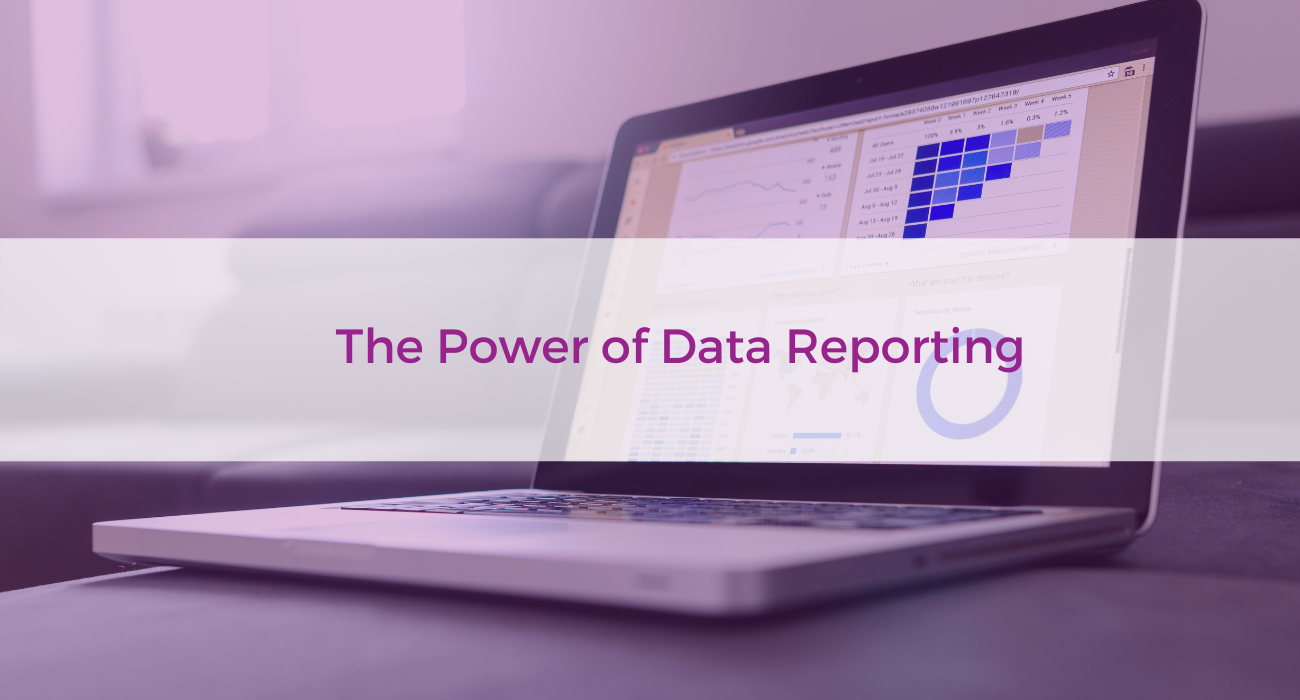
The Power of Data Reporting
The volume of data is never-ending. In fact, many organisations are sinking in data about employees, products and customers. Data results have never been so immeasurable, but yet so vitally important. Without a clear understanding of what data businesses analyse and interpret, there could be a missed opportunity if a data reporting platform is not included. So, why is reporting necessary for organisations?
The Reporting Evolution
Reports are the foundation of any organisation. Without a doubt, they are an integral part of business strategy. A successful data reporting platform allows businesses to look for opportunities in the market and current trends, with business reports providing a critical analysis of how the organisation is doing across all areas, recognising what has worked and most importantly, making data-driven decisions to suggest areas to improve on.
Previously, mountains of paper with tables and charts used to be the traditional way of data reporting, and reporting requirements started off as a tool for pinpointing patterns in business’ data. Now the world of reporting has been revolutionised, with new needs and urgencies growing rapidly. As time moves on, this has evolved into a robust, streamlined solution, bringing data reporting platforms alive in real-time. In today’s digital age, technology is constantly evolving, with automation and visual representation of data at our fingertips. With the help of technology to collate, compile and analyse data of all shapes and sizes, important strategic business decisions can now be made by senior decision-makers straightaway, relieving the dreaded month-end headache.
The Introduction of Self-Service Reporting
Over the last couple of years, the world of Business Intelligence (BI) has been turned upside down. Data became more extensive, meaning that organisations need to utilise the advances of technology with established IT infrastructures to ensure they can transition to adopt cloud-based computing – resulting in spreadsheets taking a backseat to actionable data visualisations. Subsequently, self-service reporting such as people analytics took charge. Suddenly, advanced analytics is not just for the analysts.
Today, getting to grips with complex data analysis has now become second nature with the introduction of self-service reporting platforms. Advances in technology remove unnecessary stress and labour hours of gathering, sorting, and using data to make informed business data-driven decisions. Using self-service reporting or even ad-hoc reporting has highlighted the positive impact of putting data back in the hands of individual teams, departments and management. Immediately, this switch allows individuals to utilise their time effectively by exploring the true meaning of the data – rather than inputting data which could lead to numerous human errors.
The rise of self-service reporting has gathered interest in the growing necessity for modern organisations to embrace a data-driven culture. Now, decisions are made on facts and observations – avoiding haste or gut.
A Bright Future Ahead
As businesses ride the wave of the challenges over the last two years, senior leaders have understood that data needs to be understood and actioned quickly and efficiently. Additionally, viewing data visually across a number of departments allows businesses to reach their targets and goals – rather than having to unpick the data at hand in spreadsheet form. By adopting technology, employees can become more effective and can look forward to month-end reporting.
At Neo PR, we understand the importance of reporting and utilising your data to make the best decisions for your business. We also know how crucial it is to champion this topic in the media so that organisations of all shapes and sizes, in all sectors, can recognise the value in the information they hold – or should hold. Get in touch to find out more and how we can help at prworks@neopr.co.uk




